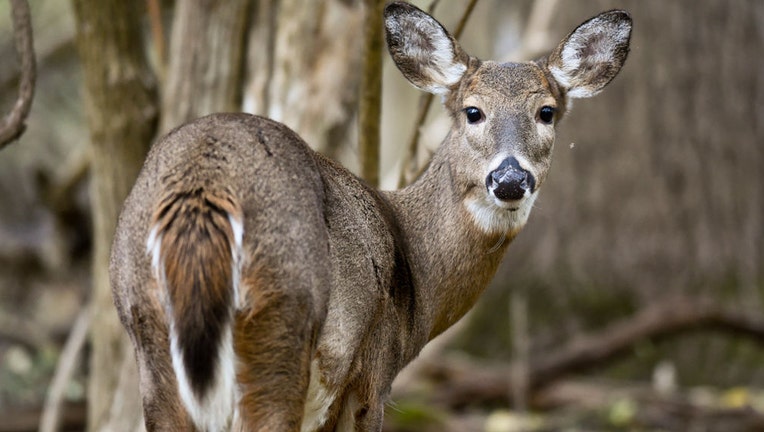Chronic Waste Disease confirmed in Michigan deer

FILE - A whitetail deer looks for food in the woods.
(FOX 2) - A deadly neurological disease known for affecting different species of moose, elk, and other hoofed mammals has been confirmed in a white-tailed deer in Michigan.
The Michigan Department of Agriculture and Rural Development said it detected a case of chronic wasting disease in a deer in Mecosta County, which is west of Mount Pleasant.
CWD is not a typical disease that's found in the wild in Michigan, although it isn't unheard of to reported in wildlife in the state. It's previously been reported in 10 west Michigan cervid farms. It was confirmed in a 3-year-old deer during routine testing as part of the state's surveillance program for farmed deer.
"MDARD is committed to limiting the spread and impact of this disease. CWD surveillance testing plays an integral part in accomplishing this goal because it helps us to detect and respond to the disease promptly," said State Veterinarian Dr. Nora Wineland. "In addition, our continued partnership with farmed cervid owners, hunters, and other state and federal partners is also essential to ensure the health of Michigan’s farmed deer population."
The disease is known to travel from one animal to the next, as well as indirectly through the environment.
Animals infected with CWD may not exhibit symptoms for years. However, animals that are infected will eventually show abnormal behavior signs, weight loss, and physical debilitation.
CWD has previously been reported in Kent, Montcalm, and Newaygo counties. It's also been confirmed free-range deer in both the Upper and Lower Peninsulas, with the earliest case being confirmed in 2015.
Currently, there have been no reported cases of CWD infection in humans. However, as a precaution, the U.S. Centers for Disease Control and the World Health Organization recommend that CWD-infected animals should not be consumed as food by either humans or domestic animals

